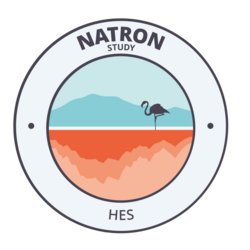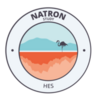Welcome to our September research update! Getting involved with research is an important way to impact asthma and allergy treatments, education, and awareness.
This month, we are highlighting clinical trials, interviews, focus groups, and news on:
- Asthma
- Hypereosinophilic syndrome (HES)
- Chronic spontaneous urticaria (CSU)
- Universal flu vaccine clinical trial
- EGPA clinical trial results
Asthma and Allergy Clinical Trials
NATRON Study for Hypereosinophilic Syndrome (HES) Is Seeking Eligible Participants
Do you or your child have Hypereosinophilic Syndrome (HES)? The NATRON study is now enrolling patients 12 and older.

Those who qualify may receive:
- Study-related care from local doctors at no cost
- Study medication at no cost
- Reimbursement for reasonable trial-related travel expenses
There is no obligation, so answer a few questions now to see if you or your child may qualify to participate.

Sponsored by IQVIA
Are You Currently Taking Oral Corticosteroids (OCS) for Your Asthma?
Would you like to contribute to important new research? SUNRISE is a clinical study investigating whether a new biologic treatment called tezepelumab may help to reduce or remove the need for OCS in adults with severe asthma. The study is looking for people who:
- Are between 18 and 80 years of age
- Have had an asthma diagnosis for at least 1 year
- Have been taking OCS for asthma for at least 6 months
- Have been using inhaled corticosteroids for at least a year, and a long-acting beta 2-agonist (LABA) for at least 3 months
- Have not been receiving any biologic treatment for asthma for at least 4 months
Sponsored by AstraZeneca
Interviews and Focus Groups
Participants Needed for Asthma Self-Management Study
Researchers at Texas Woman’s University want to learn more about adolescent asthma self-management. The researchers would like to understand the experiences and perspectives of teens and young adults living with asthma. Participants will have a chance to speak about their asthma control, asthma tools, and experiences. The study format will be a private interview. Interviews will take place via Zoom.
Who may qualify to participate in this study?
- Adolescents living with asthma
- 12-21 years old
- English speaker
The study participants will be given:
- $20 Amazon gift card
- Asthma resources
Participation is voluntary. You can stop the sessions at any time. There is a potential risk for loss of confidentiality in all email downloading, electronic meetings, and internet transactions. If you have further questions about the study, please call Elif Isik (PhD, RN) at (713) 794-2109 or email her at eisik@twu.edu.
Now Recruiting Participants for Chronic Spontaneous Urticaria (CSU) Interviews
AAFA is looking for people who manage chronic spontaneous urticaria (CSU) to interview for a research project. The interview will provide an opportunity for you to share your firsthand experiences and needs managing CSU. Collected feedback will help AAFA develop and improve our CSU resources.
The discussion should take about 30-45 minutes and can be scheduled at your convenience. If you are chosen to participate in an interview, we will pay you for your time. If you would like to participate in an interview, please take this quick survey to see if you are eligible.
Do You Have Eosinophilic Gastroenteritis (EGE)?
AAFA wants to expand information about eosinophilic gastroenteritis (EGE)! Please reach out to us if you have experience with EGE and would be interested in learning more about our research opportunities.
Latest Asthma and Allergy Research News
Asthma
AAFA’s 2023 Asthma Capitals™ Report Lists Most Challenging Cities to Live in the U.S. with Asthma
Asthma is greatly influenced by where someone lives. People who have affordable and accessible health care, clean air, and economic stability have a greater chance of managing and controlling their asthma. AAFA’s Asthma Capitals™ report ranks the largest 100 cities in the continental U.S. by how challenging they are to live in when you have asthma. AAFA publishes this report to show the nationwide burden of asthma. It is a call to action to help the more than 27 million people in the U.S. with asthma.
Asthma-Associated Emergency Department Visits During the Canadian Wildfire Smoke Episodes — United States, April–August 2023
From April 30 to Aug. 4, 2023, smoke from wildfires in Canada affected most of the contiguous United States. A new report from the Centers for Disease Control and Prevention (CDC) shows that asthma-associated emergency department visits were 17% higher than expected during the 19 days with wildfire smoke that occurred during the study period. Larger increases were seen in regions that had higher numbers of continuous wildfire smoke days and among children aged 5 to 17 and adults 18 to 64 years. These results can help guide emergency response planning and public health communication strategies, especially in U.S. areas where wildfire smoke exposure was previously uncommon.
Pollen-Related Asthma More Likely to Land Black Patients in the Hospital, Study Finds
Climate change has long been associated with longer and more intense pollen seasons. In a new study, researchers in Atlanta looked at how pollen affected asthma in the city over a 26-year timeframe. The study results were similar to previous research suggesting that pollen seasons are starting earlier, lasting longer, and becoming more intense. But the study also uncovered racial disparities in emergency department visits. Black patients were twice as likely as white patients to visit the emergency department for allergic asthma. This might be due to where they live, access to health care, and disparities in asthma treatment quality.
Food Allergy
AAFA Releases Statement on FDA Decision on neffy® Epinephrine Nasal Spray
On Sept. 19, the FDA rejected neffy, an epinephrine nasal spray to treat anaphylaxis, a severe allergic reaction. The FDA has asked for another study. The Asthma and Allergy Foundation of America (AAFA) released a statement about the FDA’s decision.
New Stock Epinephrine and Stock Inhaler Toolkits Improve Safety of Students with Anaphylaxis and Asthma
The American Academy of Allergy, Asthma & Immunology (AAAAI) has created new stock epinephrine and stock inhaler toolkits to help schools keep kids safe. The toolkits are designed to work in different states and schools to help prevent dangerous asthma and allergy emergencies and keep students safe. The epinephrine toolkit has information on what to do during a severe allergic reaction, training for non-medical staff, and videos to help students with allergies. The inhaler toolkit has resources on understanding state laws, how to help students having trouble breathing, and how to train staff.
Nestlé Divests Peanut Allergy Treatment Palforzia to Stallergenes Greer
Nestlé has sold its peanut allergy drug, Palforzia, to Stallergenes Greer, a Swiss biopharma company. Palforzia is an oral therapy that helps reduce peanut allergies by gradually exposing patients to small amounts of allergenic proteins. It was approved for children aged 4 to 17 and adults following a peanut-avoidant diet. This will expand Stallergenes Greer’s portfolio, which already has treatments for various allergies like grasses, mites, and trees.
Nasus Pharma Announces Publication of Positive Clinical Results for Its Epinephrine Intranasal Powder Spray
Nasus Pharma has shared positive findings from a study on their new epinephrine intranasal powder-based spray. This device, called FMXIN002, aims to provide quick and effective relief for severe allergic reactions caused by food, medicine, or insect bites. The study compared it to traditional epinephrine auto-injectors that deliver medicine through the muscle. The study found that FMXIN002 performed well, especially in simulating nasal congestion during allergic reactions. It delivered epinephrine quickly and effectively, with no significant side effects. This powder-based approach also offers better stability and longer shelf life compared to liquid forms of epinephrine. These results suggest that the new intranasal powder could be a promising and user-friendly solution for life-threatening allergies.
Flu
NIH Clinical Trial of Universal Flu Vaccine Candidate Begins
A clinical trial for a new universal flu vaccine has started at the National Institutes of Health's Clinical Center. Current flu vaccines are updated each year to best match the three to four strains of flu that are predicted to be the most dominant in the upcoming flu season. This new vaccine, called FluMos-v2, aims to provide broader protection by displaying harmless flu proteins on small particles. This method trains the immune system to recognize and fight the actual flu virus. The trial will involve 24 healthy volunteers receiving two shots of the vaccine 16 weeks apart. Researchers hope it will offer protection against various flu viruses. If successful, such vaccines could be taken less often and safeguard against multiple flu strains.
Eosinophilic Granulomatosis with Polyangiitis (EGPA)
FASENRA Met the Primary Endpoint in the Mandara Phase III Trial in Eosinophilic Granulomatosis with Polyangiitis (EGPA)
AstraZeneca's FASENRA (benralizumab) has shown positive results in a phase III trial for treating eosinophilic granulomatosis with polyangiitis (EGPA). EGPA is a rare, immune-related disease that can damage various organs if left untreated. FASENRA is a monthly injection that targets eosinophils, white blood cells involved in inflammation. The trial compared FASENRA to mepolizumab, the only approved treatment for EGPA. FASENRA demonstrated similar remission rates and was shown to be safe to use. These results are promising as there are limited treatment options for EGPA patients. FASENRA's convenience and effectiveness could make it a valuable treatment for EGPA, improving the lives of those affected.
It is important to stay up to date on news about asthma and allergies. By joining our community and following our blog, you will receive news about research and treatments. Our community also provides an opportunity to connect with other people who manage these conditions for support.



Comments (1)